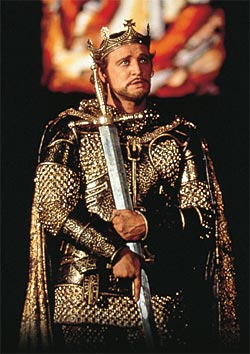 .
.TABLE TALK
In England, the most popular tales of chivalry are the Welsh legends of King Arthur and his knights of the Round Table. No one knows for sure if there was a real person who served as the inspiration for Arthur …or if so, which historical figure it was. The earliest known mention of Arthur is a reference to a mighty warrior in “Gododdin,” a Welsh poem written about 600 AD. Another 200 years would pass before Arthur would receive another mention, this time in The History of the Britons, which credits him with winning 12 battles against Saxon invaders.
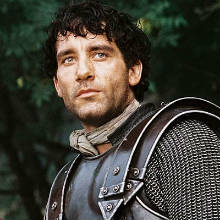
COOKING THE BOOKS
So where did Geoffrey of Monmouth get his information? He claimed to have gotten it from a “certain very ancient book written in the British language,” but did not identify it by name. Historians now believe there was no such book. They theorize that Geoffrey simply recorded the popular tales of his day, and when needed, made up his own details to fill in any gaps, drawing from legends surrounding leaders like Alexander the Great and Charlemagne. That didn’t stop readers from taking The History of the Kings of Britain seriously -it served as the standard text on British history for more than 600 years.
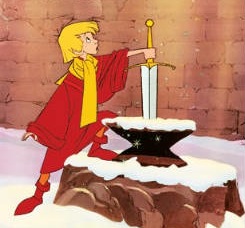
TIME WARP
One thing historians agree on is that even if “King Arthur” really did live in England in the early sixth century, he and his knights did not live in castles, wear suits of armor, or fight in tournaments -because none of those things existed in the sixth century. So why is Arthur so closely associated with them? Because Geoffrey of Monmouth and other contributors to the Arthurian legend had no sense of how different life had been 600 years earlier. They, not Arthur, lived in an age of castles and knights in shining armor, and they filled their stories with the trappings of their own era. In the process they created a world for King Arthur that he, if he did really exist, would never have recognized.
YOU CAN LEAD A KNIGHT TO WATER…
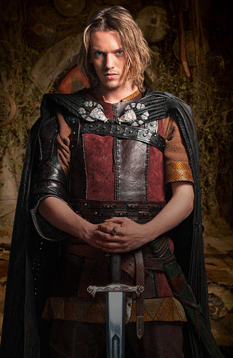 What
about the generations of knights that grew up listening to the
chivalrous tales of King Arthur and his knights of the Round Table -how
well did they live up to the noble example set by their hero? Did they
give to the sick and the poor? Did they protect orphans and the elderly?
Did they respect woman and treat captured knights with the same respect
they’d show upon guests?
What
about the generations of knights that grew up listening to the
chivalrous tales of King Arthur and his knights of the Round Table -how
well did they live up to the noble example set by their hero? Did they
give to the sick and the poor? Did they protect orphans and the elderly?
Did they respect woman and treat captured knights with the same respect
they’d show upon guests?Not quite -medieval knights preached chivalry, but practicing it was another story, as Will Durant writes in The Story of Civilization:
Theoretically the knight was required to be a hero, a gentleman, and a saint. All this, however, was chivalric theory. The hero who fought one day bravely in tournament might on another be a faithless murderer. He might [preach] of protecting the weak,and strike unarmed peasants down with a sword; he treated with scorn the manual worker and with frequent coarseness and and occasional brutality the wife whom he had sworn to cherish and protect. He could hear Mass in the morning, rob a church in the afternoon, and drink himself into obscenity at night.
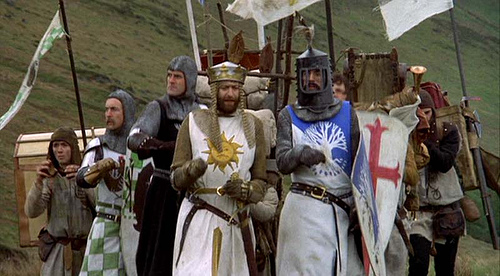

No comments:
Post a Comment